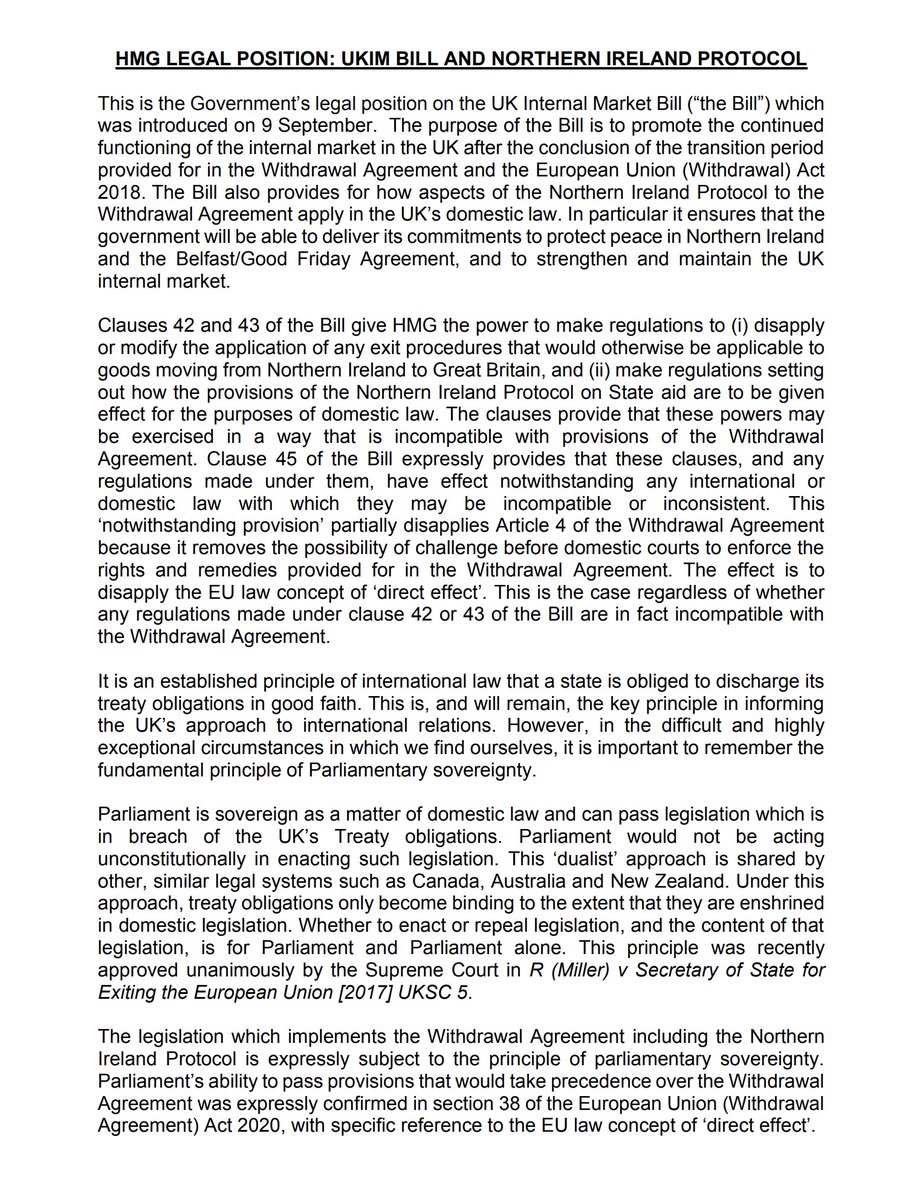Attorney General @SuellaBraverman still hasn’t resigned, but she has broken her recent silence on the Internal Market Bill by publishing a statement of HM Government’s ‘legal position’ on it.
It runs to one side of A4.
And it is utterly risible.
/1
https://assets.publishing.service.gov.uk/government/uploads/system/uploads/attachment_data/file/916702/UKIM_Legal_Statement.pdf
It runs to one side of A4.
And it is utterly risible.
/1
https://assets.publishing.service.gov.uk/government/uploads/system/uploads/attachment_data/file/916702/UKIM_Legal_Statement.pdf
The Government’s statement is risible because it utterly misses the central point of concern. That concern is that the Internal Market Bill authorises Ministers to repudiate specific, critical and recently agreed legal obligations under the Withdrawal Agreement & NI Protocol. /2
The AG freely acknowledges this and concedes that the UK is required, as a matter of international law, to discharge its treat obligations in good faith. She then attempts, but fails, to make an exceptionalist argument based on parliamentary sovereignty & dualism. /3
The contention appears to be that because the UK’s internal constitutional arrangements allow Parliament, as a matter of *domestic* law, validly to enact any *domestic* law, this somehow makes it acceptable for the UK to breach *international* law. That is a non sequitur. /4
The AG also places weight on but misunderstands the implications of the ‘dualist’ nature of the UK legal system. She claims that it means that ‘treaty obligations only become binding to the extent that they are enshrined in domestic legislation’. That is flatly incorrect. /5
In a dualist system, matters set out in treaties are *enforceable in* domestic law only to the extent that they are enshrined in domestic legislation — but treaty obligations are nevertheless *binding* on the State in *international law*. /6
The Government’s argument is that Parliament’s legal capacity in domestic law to make any law it wants somehow makes it acceptable, as a matter of international law, for the UK to renege on its treaty obligations. But the latter does not follow from the former. /7
Contrary to the Government’s position, the UK, like every other State, is required in international law to abide by its treaty obligations. Neither parliamentary sovereignty nor the notion of dualism is any answer to that point. /8
The UK may have left the EU, but it has not left the community of nations or the rules-based international order. Treaty obligations are binding upon the UK, and to suggest that they are not ‘because Parliament is sovereign’ is as embarrassing as it is dangerous. /ends

 Read on Twitter
Read on Twitter


